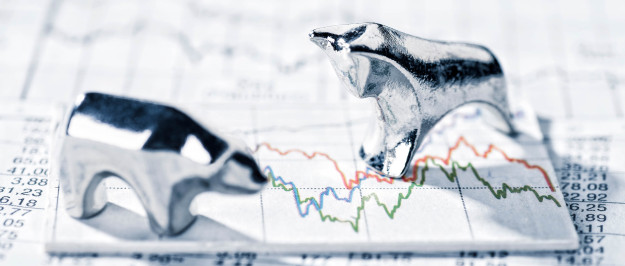Panic doesn’t pay: Tips from professional investors
Harbour’s investment team has decades of experience in managing Australasian shares and New Zealand bonds. Whilst over time, investors generally experience favourable market conditions allowing us to generate positive returns, it tends to be the downturns that people remember most. The table below illustrates this, as New Zealand share market returns were positive for around three quarters of the years shown:
Annual returns…
Harbour Outlook: At Home
Key points
- COVID-19 continues to spread globally with cases recently reaching over 1 million.
- Governments and central banks’ stimulus measures are helping mitigate the impacts of a sudden stop in economic activity.
- Equities posted losses as investors digested the impact of reduced economic activity on company profits, while bond yields in many countries rose as investors baulked at the large increase in bond supply which is required to fund expanding government deficits globally.
- Russia’s refusal in early March to back an OPEC production cut resulted in Saudi Arabia dramatically increasing supply to “punish” the country. Combined with reduced global demand, oil prices have fallen more than 50% year to date.
How this could be different to the GFC
Key Points
- Headlines around COVID-19 outside of Asia have continued to worsen and, coupled with the oil spat between Russia and Saudi Arabia, have sharply reduced investment sentiment and created pockets of financial stress.
- While sentiment is clearly downbeat, we need to recognise that there is still a wide range of outcomes that can occur.
- In the event COVID-19 does result in recession, note all recessions have been different.
- While this volatility is unsettling, it is important to put this sell-off in historical context.
Harbour Outlook: Short term uncertainty reigns
Key points
- The spread of COVID-19 outside of China dented sentiment during February, causing global interest rates and equity prices to fall sharply.
- US political risk was elevated during the month, as polling and early primary results saw Bernie Sanders emerge as the frontrunner in the race to become the Democratic candidate for the US Presidency. He since has dropped to a clear second favourite, behind Joe Biden. Sanders is not considered a “market friendly” candidate due to his views on (anti) trade, plans to break up big tech and unconventional views on monetary policy.
- The US earnings season saw 491 companies report. 359 companies (73%) delivered earnings in excess of consensus estimates, with the best performing sectors being technology where 94% of companies beat expectations. The sectors which performed poorest were telecommunications (50% beat rate), and oil and gas (44% beat rate).
- In New Zealand, the December company reporting season was weaker than expected with more misses against expectations in results, versus beats. Company outlook statements were cautious. Consensus earnings forecast downgrades exceeded upgrades.
Harbour Outlook: Coronavirus contagion uncertainty
Key points
- The conflict between the US and Iran caused some market volatility but proved to be short lived.
- Activity indicators were generally stronger in January. US manufacturing, which had been an area of weakness, posted a strong print in early February, well above expectations.
- The US earnings season was very strong. At the time of writing, 320 S&P 500 companies have reported with 238 (74%) of those companies beating consensus earnings expectations.
- The outbreak of Novel Coronavirus (2019-nCov), a relatively less deadly but more contagious coronavirus than SARS, will have an impact on global economic activity due to cities being in lockdown and supply chains being disrupted.
- Interest rates and commodity prices have dropped substantially in response to the coronavirus outbreak. Equities, however, appear to have been supported by strong earnings and greater emphasis on the prior uptick in economic activity.
Top 10 risks (and opportunities) for the next decade
“We always overestimate the change that will occur in the next two years and underestimate the change that will occur in the next ten. Don't let yourself be lulled into inaction”
- Bill Gates
A decade ago, the world’s largest and fourth largest companies were oil companies, Exxon Mobil and BP. The third largest company was HSBC Bank and the sixth largest company was IBM, the inventor of mainframe computers. Entering a new d…
Harbour Outlook: Downside risks reduced
Key points
- Risks of an escalation in trade conflict and a disorderly Brexit subsided in December, boosting equity markets further. The improved sentiment was somewhat dampened by rising geopolitical uncertainty in the Middle East.
- Activity indicators were stronger in December, with a further recovery in New Zealand confidence. The US manufacturing sector remains the fly in the ointment.
- Generally improving economic indicators and the reduction of tail risks saw bond yields rise over the quarter, meaning negative returns for fixed interest investments.
- Domestically, the Government confirmed additional capital expenditure ($12bn over the 5-year forecast period) that should provide further support to economic activity. The Government forecasts that the package will add 1.4% to GDP.
Top 10 risks (and opportunities) for 2020
What a difference a year makes. When we sat down to write down the risks and opportunities for 2019, we were amid a sharp market drawdown. The US earnings season had raised concerns about an earnings recession, the market was worried the Fed was too hawkish and the trade war had injected fear into markets. Fast forward to today and earnings have been resilient, the Fed is on hold and the trade war, which did escalate during 20…
READ MOREHarbour Outlook: Earnings deliver, trade fears fade
Key points
Equity markets rallied on the back of positive trade developments, better than expected earnings and improved activity indicators.
The New Zealand market performed strongly on the back of a strong AGM and reporting season. Notably, the more defensive stocks which have outperformed in 2019 delivered weaker returns due to an increase in interest rate expectations.
Lead economic indicators have improved, but it is too …
Harbour Outlook: Risks reduced but not removed
Key points
- Global equities outperformed bonds in October as trade risks abated, US earnings impressed and central bank easing supported sentiment.
- The economic outlook for Australasia improved and the associated higher interest rates reduced the value of fixed income assets. Equities underperformed their global counterparts due to sectoral weakness in electricity, banking and materials stocks.
- We retain a degree of scepticism in the macro outlook. The global backdrop has improved but remains fragile. Domestically, large amounts of monetary stimulus have been delivered but confidence is poor and activity soft.
- This environment should favour growth stocks where Harbour equity portfolio exposure is concentrated alongside maintaining exposure to several defensive investments. Within fixed interest portfolios, we reduced duration in October but remain long relative to benchmark given soft economic activity and residual risk.




